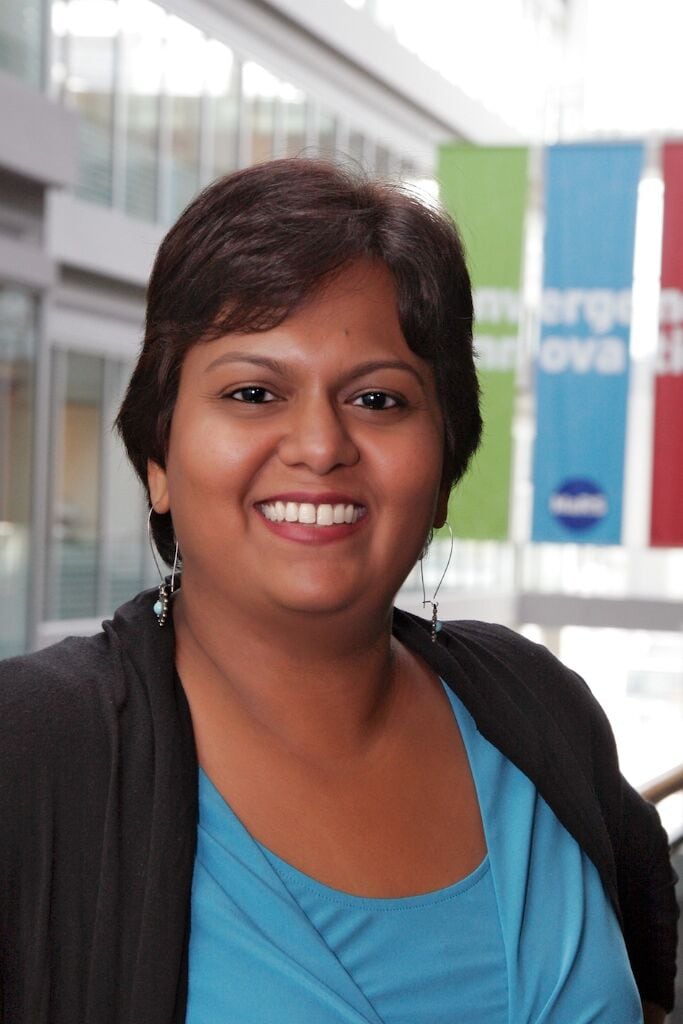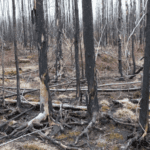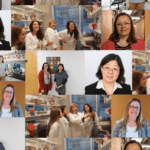When Usha Srinivasan, PhD, thinks of the characteristics that have served her best in her career, the words optimistic, fearless, and relentless are what come to mind. “I found career opportunities,” she emphasizes. “They weren’t clearly visible, ready-made roles. You must understand your passion, and seek organizations or companies involved in that work to achieve your desired career trajectory.”

Now a senior level executive at MaRS, Ontario’s largest urban innovation centre, Srinivasan manages their various entrepreneurship programs at regional innovation centres and campus-linked accelerators across the province. More recently she’s been given responsibility for the MaRS youth program: Studio [Y], and for their data program: MaRS Data Catalyst.
But Srinivasan started off far from her current path. Originally from India, her father was a doctor and she wanted to follow in his footsteps. This led her to the University of Bristol, UK, where she enrolled in their microbiology program with the intention of specializing in medical microbiology or genetic engineering.
“I realized I wasn’t comfortable either with the animal testing required in medical microbiology, or with creating new genetic variations of plants, so I pursued Bristol’s third microbiology stream: environmental microbiology,” she recalls. She obtained a BSc in 1990 and, piqued by a final year project that developed a commercial biological control product for wheat rot fungus, moved on to a PhD at the Dundee Institute of Technology (now Abertay University). Here she developed a biological control product to manage white rot fungus in wooden telephone poles.
Since the UK educational system traditionally doesn’t require a Master’s degree, Srinivasan completed her PhD in 1993 at the ripe age of 24. Based on connections she’d made with American researchers as a visiting PhD student at the USDA’s Madison, Wisconsin, Forest Products Laboratory, she secured postdoctoral funding from the US Environmental Protection Agency to continue her work on white rot fungus in Cincinnati, Ohio.
Academia, however, can be a somewhat nomadic existence, as many readers are well aware. After three years in Cincinnati, not only was Srinivasan’s postdoc coming to an end, but her visiting scientist visa was set to expire. She and her spouse decided to immigrate to Canada, where she found a second postdoc at the University of Toronto. Unfortunately, just before coming to Canada, she discovered that her supervisor had resigned his position in Toronto and was in the process of moving to Fredericton – leaving her to follow suit.
She credits this second, one-year postdoc with introducing her to contract work and the more applied aspects of her research. “I developed skills that are less common in academic science, including website development, graphic design, creating pricing sheets, and writing business proposals,” she recalls.
Once again, however, family matters intervened when Srinivasan’s spouse – a newly minted MBA and new Canadian – could only find work in his field in Whitehorse! Thus in 1998, she made the decision to put her career on hold, move to the Yukon, and start a family.
“I thought I’d enjoy a break from work,” Srinivasan laughs, “but after a couple of months I was ready to take on new challenges.” This is when her ability to create work for herself – rather than finding already advertised jobs – really took off.
She networked with Yukon College’s Northern Research Institute (NRI) (now Yukon Research Centre) and what was then the Ministry of Natural Resources to demonstrate how her skills as a mycologist would be useful in understanding the regrowth success of evergreen saplings in the Yukon region. Since the Ministry had no funding, she leveraged grants through NRI and Yukon College, and used College lab facilities and volunteers from WWF Canada to complete the project. This gave her the confidence to launch her own consulting company called Sustainable Business Solutions. “A lame name, I know, but I can’t remember how I decided on it,” she says.
One of her contracts was editing and research for the 1999 Yukon State of the Environment Report. “This gave me the opportunity to work with local environmental engineering firms, service providers, government and First Nations communities,” she remembers, and was instrumental in building her career network.
After a couple of years up north – and the birth of their daughter – Srinivasan and her family moved south again to Toronto, and she had a son soon after. “This was a critical time in my career to really think through the type of work I wanted to get into. I realized from running my own consulting business that I enjoyed that more than just the technical work,” she says.
Demonstrating that optimism, fearlessness and relentlessness, Srinivasan contacted the California head office of Frost & Sullivan, a global market research and consulting firm. “I’d heard about them through my spouse, and knew they liked hiring people with technical backgrounds, essentially teaching them business on the job and through hands on projects,” she explains. “To my surprise, they were looking for someone with soil and ground water remediation background, so I joined them as a contractor in early 2001. In the next year I learned so much about water and wastewater treatment technologies and markets from doing interviews, data gathering and analysis, technology evaluations, and more, that Frost & Sullivan offered me a full time role as a consulting analyst.”
She spent the next eight years with Frost & Sullivan, moving from her initial consulting analyst role to Industry Manager and then Research Manager. “It was probably the most exciting time to work in the water sector,” she recalls. “There were many mergers and acquisitions, as everyone from hedge funds to private equity and venture capitalists were interested in water treatment technologies and companies.” By the end of those eight years, Srinivasan had built a team of 12 analysts located around the world, and had executed projects for large companies such as GE, Honeywell, Lockheed Martin, and IBM, to name just a few.
Unfortunately, the novelty was wearing thin. “I found I was getting tired of the consulting environment,” she says. “And with two young kids, travelling extensively to the US was proving difficult. I also found it frustrating that we were mainly working with US companies, as I really wanted to know what was happening in Ontario and Canada.”
Most Canadian companies couldn’t afford the services of Frost & Sullivan, but through her networks Srinivasan found out about MaRS. “Given their mission and mandate, I really wanted to join an organization doing such meaningful work,” she says. “I contacted one of their senior employees who seemed to have a clean tech background, and asked if someone with my skillset would have an opportunity to work at MaRS. To my surprise, they were in fact looking for a scientist who appreciated the importance of R&D, but also had a market research background!”
Srinivasan joined MaRS as Director of the Market Intelligence team in 2008, from which she was promoted to her current position. She also teaches a ‘Market discovery and intelligence’ module in the Certificate of Entrepreneurship program through the University of Toronto’s School for Continuing Studies, a certificate that was developed by U of T and MaRS.
Though her current role is far from her beginnings as a microbiologist, Srinivasan says “the researchers’ curiosity to find answers to difficult questions never goes away. My current role wouldn’t be possible without my collective experience from academia, market research, and teaching. The most important thing for young scientists to remember is not be afraid to cross over to a different industry or profession – it’s this cross pollination that led me to unique opportunities.”
Her advice for young women pursuing careers in STEM? “Don’t be steered by stereotypes that girls are not good at math and only boys should go into engineering and so on. Seek role models and talk to them – I’ve been extremely lucky to have great mentors throughout my career. Read inspiring stories about women in science.”
Her own career path makes her particularly adamant about the applications of scientific training. “You may choose a career in science today, but it doesn’t mean it’s what you’ll be doing in 10, 15, or 20 years from now. With a scientific background you can launch a career in many different directions: researcher, educator, sector-based writer, investment fund manager, consulting, market researcher…the list is endless.”
And she’s demonstrated proof of that!




